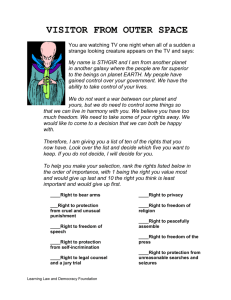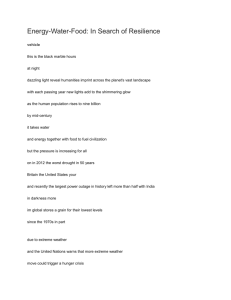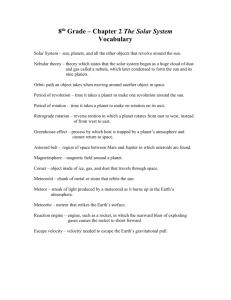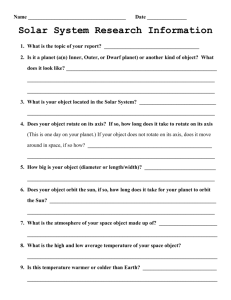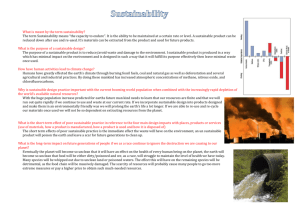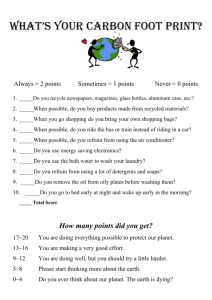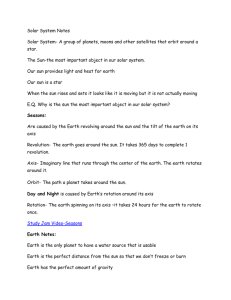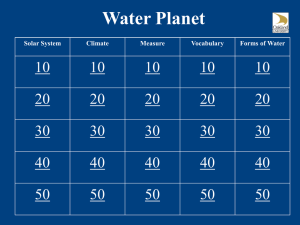PLANET RESEARCH PAPER
advertisement
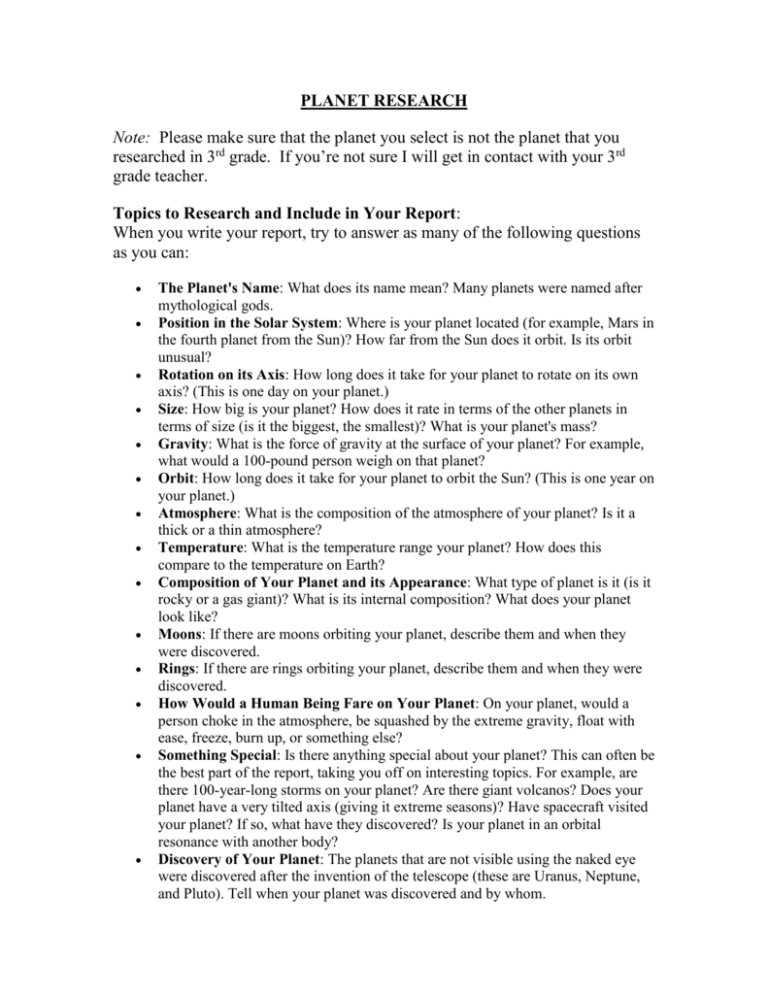
PLANET RESEARCH Note: Please make sure that the planet you select is not the planet that you researched in 3rd grade. If you’re not sure I will get in contact with your 3rd grade teacher. Topics to Research and Include in Your Report: When you write your report, try to answer as many of the following questions as you can: The Planet's Name: What does its name mean? Many planets were named after mythological gods. Position in the Solar System: Where is your planet located (for example, Mars in the fourth planet from the Sun)? How far from the Sun does it orbit. Is its orbit unusual? Rotation on its Axis: How long does it take for your planet to rotate on its own axis? (This is one day on your planet.) Size: How big is your planet? How does it rate in terms of the other planets in terms of size (is it the biggest, the smallest)? What is your planet's mass? Gravity: What is the force of gravity at the surface of your planet? For example, what would a 100-pound person weigh on that planet? Orbit: How long does it take for your planet to orbit the Sun? (This is one year on your planet.) Atmosphere: What is the composition of the atmosphere of your planet? Is it a thick or a thin atmosphere? Temperature: What is the temperature range your planet? How does this compare to the temperature on Earth? Composition of Your Planet and its Appearance: What type of planet is it (is it rocky or a gas giant)? What is its internal composition? What does your planet look like? Moons: If there are moons orbiting your planet, describe them and when they were discovered. Rings: If there are rings orbiting your planet, describe them and when they were discovered. How Would a Human Being Fare on Your Planet: On your planet, would a person choke in the atmosphere, be squashed by the extreme gravity, float with ease, freeze, burn up, or something else? Something Special: Is there anything special about your planet? This can often be the best part of the report, taking you off on interesting topics. For example, are there 100-year-long storms on your planet? Are there giant volcanos? Does your planet have a very tilted axis (giving it extreme seasons)? Have spacecraft visited your planet? If so, what have they discovered? Is your planet in an orbital resonance with another body? Discovery of Your Planet: The planets that are not visible using the naked eye were discovered after the invention of the telescope (these are Uranus, Neptune, and Pluto). Tell when your planet was discovered and by whom. Projects available for your planets: A. Poster board with information, pictures and labels. B. Diorama with visual representation of your planet. You must have index cards with your research information for this project. C. Power point presentation. Your slides must include all the information you researched including pictures to help the class know about your planet. D. A model. You may do a model of your planet but again must have index cards with your research information for this project. All projects will be presented to the class. ½ the grade will come from your fellow students and ½ from Mr. Goulart.
